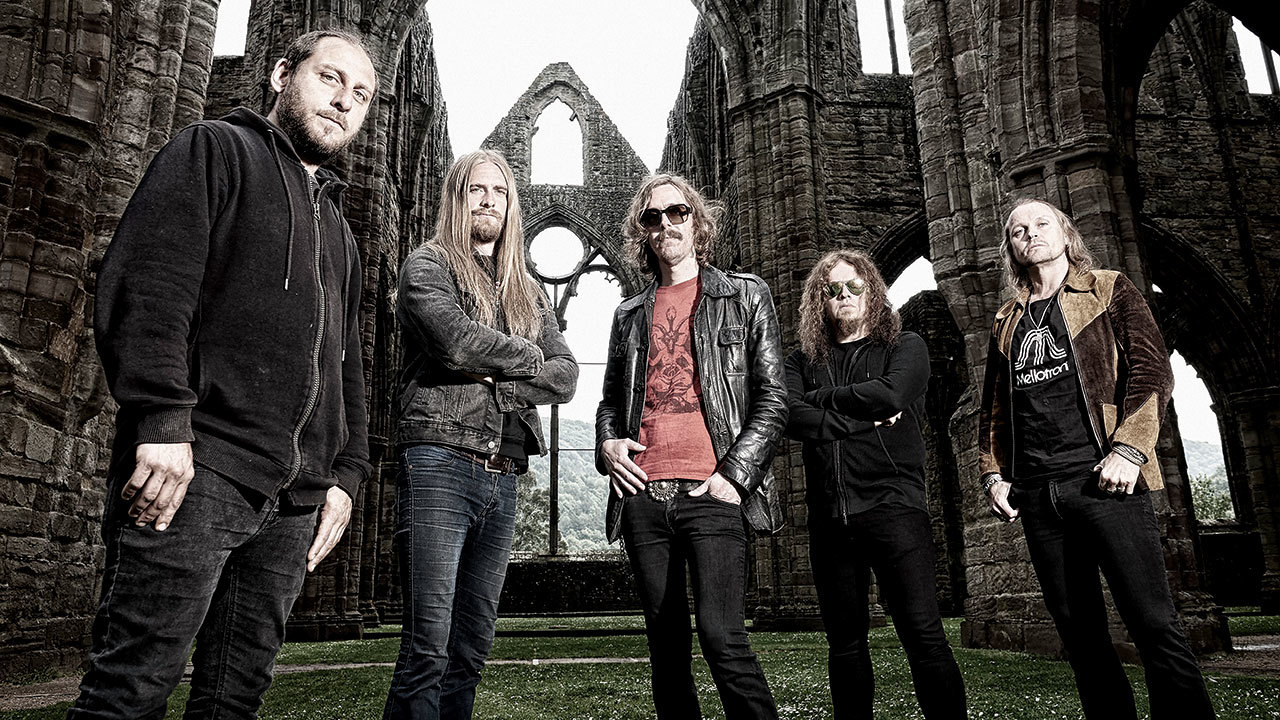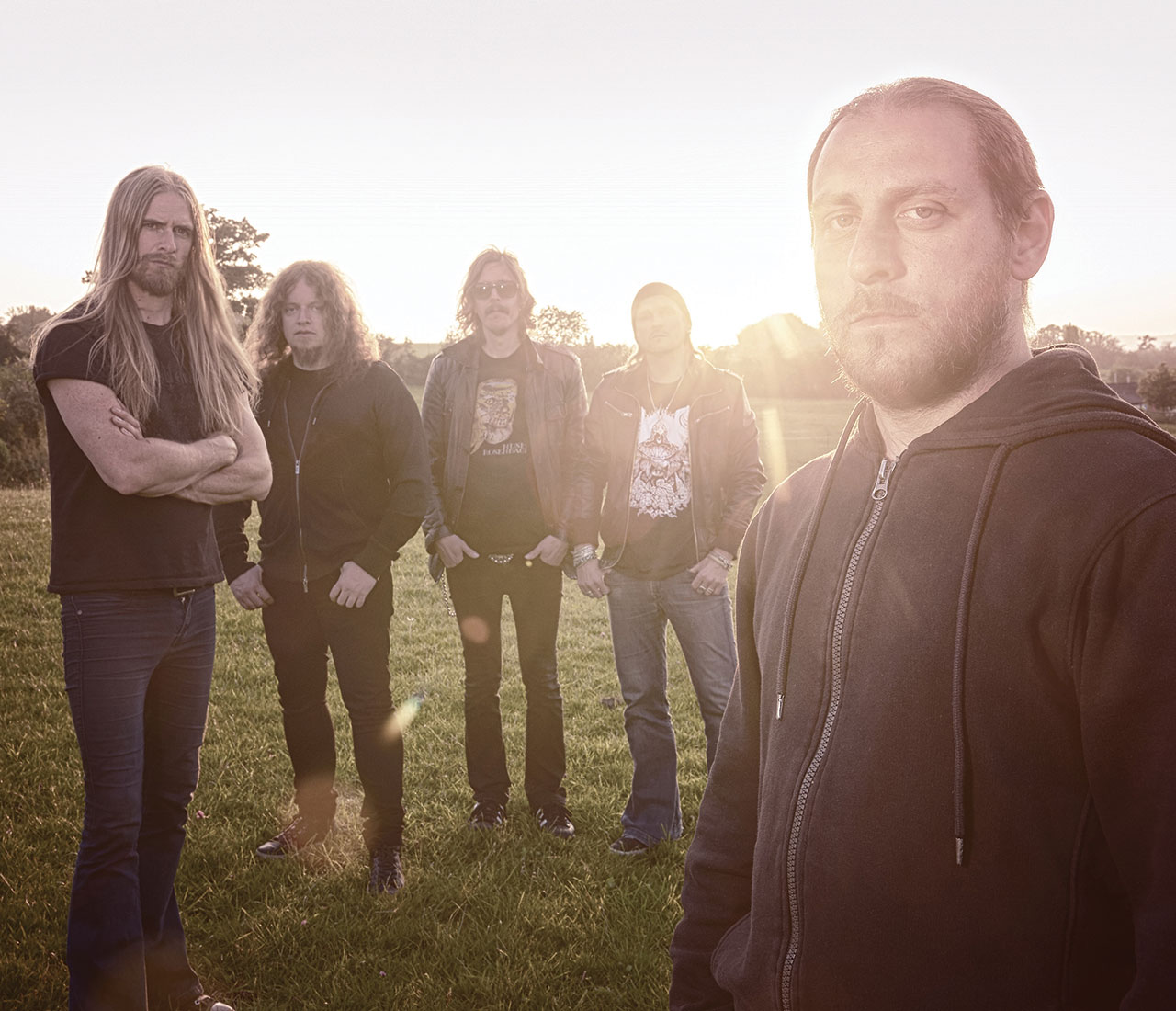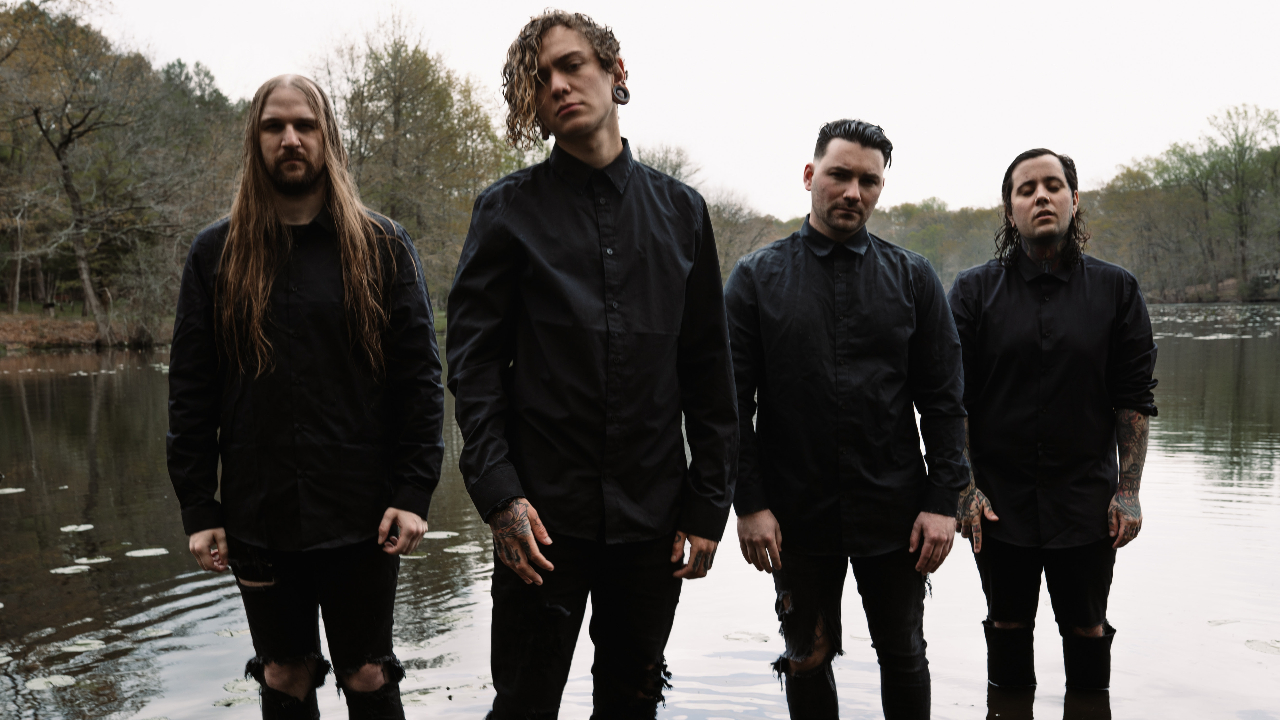Love, loss and learning to move on: the story behind Opeth's Sorceress
Following the collapse of his marriage, Opeth’s Mikael Åkerfeldt almost reached breaking point. New record Sorceress sees him exposing the agonies of love and rebuilding his life

At Opeth’s Union Chapel show in London, in November 2012, Mikael Åkerfeldt was painfully thin and visibly exhausted. The night itself was a triumph, a recital of the finest songs from Heritage alongside classics, but he was plainly at a low ebb, unusually nervous before the performance and noticeably reticent during it. He now admits he was suffering from some form of depression at the time, following the break-up of his marriage the year before.
“I see pictures of me now, and then pictures from before the big changes in my life – the musical change around the Heritage record and the huge change in my private life – and my eyes are different. I can barely recognise myself. It’s all in the eyes. I can’t even remember what went through my head back then,” Mikael says today.
Opeth went on to release and tour Pale Communion, an album that showcased the chemistry between the band’s latest and arguably greatest lineup across some of Mikael’s finest songs to date, but it is on new album Sorceress that he finally seems to confront the extremes of emotion that he went through during and after the divorce. Speaking with him now, he is much happier, having made it through considerable turmoil and avoided an outright midlife meltdown.
“I guess Sorceress is a more personal album,” Mikael nods. “Since the divorce, it’s been up and down for me, and it’s not all been negative, but the experience did inspire me to a certain extent to write these songs.”
Like many great artists, Mikael’s arrived at a point where the emotional upheavals of the past can be harnessed and used to inform Opeth’s music. Songs like the elegiac Will O The Wisp (‘You are stuck to the failures of your life / Marred with the sorrows of your strife’) and the album’s thunderous title track (‘Empty vessel, drained of hope / And nonetheless at the end of a rope / Have you ever hated like I?’) are startling and, while still shrouded in poetic metaphors, the real-life emotions behind them are abundantly clear.
“I twist and turn things and inflate any negative emotions that I have, just because I can,” he explains. ‘What I’ve written is not necessarily true or exactly how I feel, but ultimately it’s about love, and everybody feels love at some point,” he explains. “Love causes some really weird feelings. You go into some state of terror, seeking catastrophe, when all that’s really happened is that she didn’t call, you know? It’s like the cogs stop turning in your world, and I think everyone can relate to that.”
It’s not the first time Mikael’s personal trauma has spilled over into Opeth’s music. He has previously spoken about the painful time he went through when his band recorded the Deliverance and Damnation albums, and how he ended up seriously ill as a result of severe stress caused by too much work and disintegrating relationships within the band. This aside, he’s rarely discussed the emotions behind those long, adventurous songs with their hazy, poetic lyrics, preferring instead to talk about the music and let the music do the talking.
Sign up below to get the latest from Metal Hammer, plus exclusive special offers, direct to your inbox!
“Everyone has their own way of dealing with this stuff,” he shrugs. “It’s really difficult, but it’s really important to do it. I know it’s not the traditional metal way, to talk about these things, but it’s extremely important to me. As time progresses, it’s become even more important to me. It makes me happy, and after the last few years, I’m tired of not being happy. It’s hard work, you know? But that stuff will always have some impact on the music we make.”
- What are Opeth's most treasured albums?
- The A-Z of Opeth
- Dom's Iron Sandwich: Opeth – Sorceress
- Watch cello cover of Opeth's Harvest
Given Mikael has been immersed in Opeth’s world for 25 years, he has arguably been denied what most people would consider a ‘normal’ development as a human being. Whether due to the responsibilities and pressures that come with the stewardship of an increasingly successful and lauded band or the relentless blur of chaos and commitment that comes with an ongoing cycle of albums, tours and promotional commitments, it’s not hard to see how such an all-consuming occupation could have a deleterious effect on any long-term relationship. But having survived a major crisis, both of the heart and of confidence, he seems newly emboldened and almost dismissive of the troubled man he used to be.
“No, I really haven’t had a regular adulthood,” he nods. “I’m in a really good place now, and it’s hard to remember how I was before. I had my children and I was married, but I was so lost somehow. I was oblivious. I really can’t relate to that person now. The music changed and my perception of life changed.” He leans in and adds, with a grin, “Maybe it was that traditional midlife crisis at 40!”
A few years on from his separation and the depression that followed, Mikael is a man transformed. Chatting with him today, he remains endearingly self-effacing, reliably witty, and more cheerful than he has done in a long time. He cites his current relationship, which has been underway for a year or so, as fundamental to his present state of mind, and his eyes sparkle at the mention of his partner. Having experienced the breakdown of his marriage, it’s obvious that he has a newly enhanced appreciation for the positive things that love can provide.
“I value my girlfriend so fucking much,” he declares. “I’ve become very obsessive, not in a freaky stalker sort of way, but I really value the relationship because I lost so much.”

In becoming more mindful of the importance of close relationships and the need to strike a healthy balance between work and personal life, Mikael has made a purposeful attempt to build some kind of social circle away from his day job. He admits that two decades of active service with Opeth has resulted in losing most of his childhood friends – best buddy Jonas Renkse of Katatonia being the obvious exception – and that the only people he ever hangs out with are other professional musicians, often as paths cross while on tour and in circumstances unfavourable to the developing of lasting friendships. Inspired by his newly optimistic outlook, Mikael is now taking his socialising extremely seriously. Well, kind of…
“Well, I love to have people over, and so we’ve started a gentleman’s club!” he declares with a triumphant smile. “It’s me, Fredrik [Åkesson, Opeth guitarist], Nico [Elgstrand] from Entombed A.D. and JB from Grand Magus. We go out to have a drink, or we come to my place and we listen to music. We have a group email thing where we discuss the topics we’re going to talk about at the next dinner. Like, if you had a teddy bear when you were a kid, what was it called? Ha ha! Things like that. It’s very metal. We were talking about a name, and the one we came up with was The Swallowers, because we’re always eating. I’m planning to get some rings made, because I know a silversmith, so it’s a serious business.”
In the past, most fans assumed that Opeth made a record, went on tour for 18 months and then vanished like some enigmatic band of 19th-century conjurers, but instead, Mikael occupies his time by teasing JB Christoffersson.
“With JB, it’s heavy metal or nothing, so he’s very easy to wind up!” he laughs, a mischievous twinkle in his eye. “When he’s been to my place, I’ve played stuff almost exclusively for him – things he can’t get his head around, like Scott Walker or Magma! Ha ha ha! But the truth is, there’s never really a break from being in this band. Our circle of friends, they’re all musicians. We all hang out, everybody knows each other, but I’ve never really become close with anyone. That’s why we’re doing this stuff with JB, to get to know him. I love the guy. He’s very bright, very down-to-earth… and I’m making new friends, and that feels good.”
For now, Mikael wears the proud smile of a weather-beaten ship’s captain who has negotiated treacherous waters and steered the good ship Opeth to their greatest places yet. Wembley Arena awaits – not to mention Sydney Opera House and New York’s revered Radio City Music Hall. But you don’t need to dig too deep to see that Sorceress marks the moment when Mikael Åkerfeldt finally feels relaxed enough to let us peer into his very human heart.
“It’s all there, the negative aspects of love,” he concludes with a gentle shrug. “The paranoia, the jealousy, the insecurity. It’s about the idea that love is a burden, like some kind of spell. If I did have a midlife crisis, then the most important thing I learned was that I couldn’t look back. I feel like a completely different person, and I love this band more than ever.”
Sorceress is out now, via Nuclear Blast. Opeth play Wembley Arena on November 19
Opeth's track by track guide to Sorceress
We let Opeth loose in a record store and here's what happened

Dom Lawson began his inauspicious career as a music journalist in 1999. He wrote for Kerrang! for seven years, before moving to Metal Hammer and Prog Magazine in 2007. His primary interests are heavy metal, progressive rock, coffee, snooker and despair. He is politically homeless and has an excellent beard.
